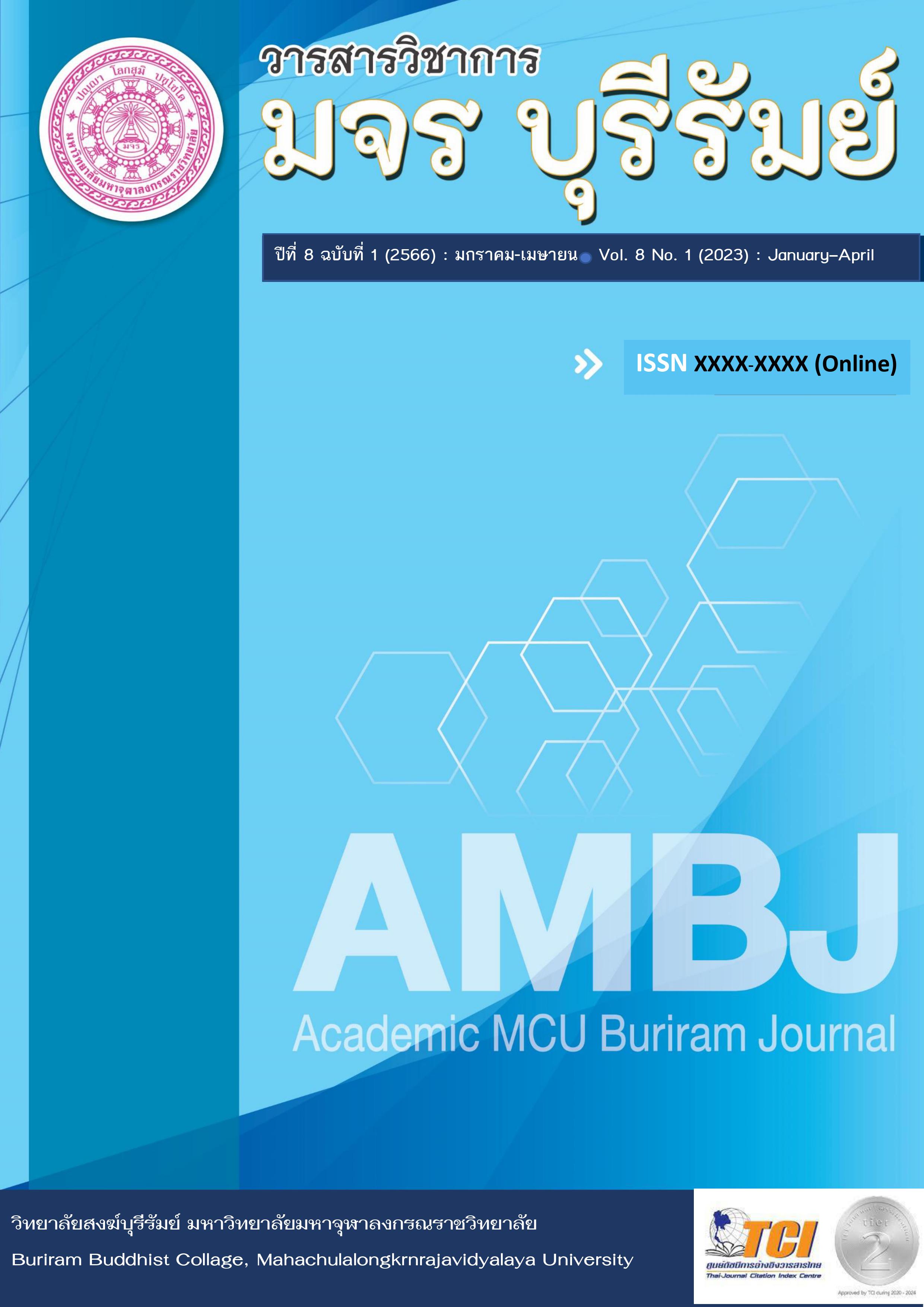A Comparative Study of the Concept of Man in Theravada Buddhist Philosophy and Philosophy of Nietzsche
Keywords:
Human, Theravada Buddhist Philosophy, Friedrich NietzscheAbstract
The purpose of this research were: 1) to study human in Theravada Buddhist philosophy, 2) to study of human in philosophy of Friedrich Nietzsche and 3) to comparative study of similarity and difference of human in Theravada Buddhist philosophy and philosophy of Friedrich Nietzsche. This research is used documentary process and presents in descriptive method.
The research results found that:
1. Human in Theravada Buddhism meant high-minded person. The nature and character of human composed of 5 Khandhas, namely, corporality (rūpa), sensation (vedanā), perception (saññā), mental formations (saṅkhāra), and consciousness (viññāna). There were 5 types of humans: 1) hell human, 2) ghost human, 3) animal human, 4) real human, and 5) god human. Humans were divided into 3 levels: 1) worldly person (puthujjana), 2) good person (kalyānajana), and 3) noble person (ariyajana). The highest aim of human can divide 3 levels; present future and ultimate goal.
2. Human in the philosophy of Friedrich Nietzsche meant the will to have power. There were two types of human: slave and master. Human can divide into 3 levels: 1) slave, 2) master and 3) the superman. Nature and character of human was selfish which was hidden with defilement. The way to superman was the symbol of children. The highest aim developed from slave and cultivated to master and superman.
3. The similarity and difference 1) human in Theravada Buddhist philosophy was high-minded person, while Friedrich Nietzsche was superman. For different opinion, Theravada Buddhist philosophy divided human into 5 categories and 3 levels, while Friedrich Nietzsche divided human into 2 types and 3 levels. Nature and character of human in Theravada Buddhist philosophy composed with of 5 Khandhas namely, corporality (rūpa), sensation (vedanā), perception (saññā), mental formations (saṅkhāra), and consciousness (viññāna), while the nature and character of human Friedrich Nietzsche was the power of defilement which show the condition of selfishness. For the different opinion, Theravada Buddhist philosophy focused on eliminating lusts in the human heart while Friedrich Nietzsche focused on using creative defilement. The highest aim of Theravada Buddhist philosophy divided into 3 levels; present future and ultimate goal, while Friedrich Nietzsche developed the bad to good person. For different opinion, Theravada Buddhist philosophy aimed to be Arahant, while Friedrich Nietzsche aimed to be superman.
References
นิทเฉอ. (2555). ผู้บุกเบิกแนวคิดหลังนวยุค ด้วยวิถึงสู่อภิมนุษย์ และซึ้งสุนทรีย์. แปลโดย กีรติ บุญเจือ. กรุงเทพมหานคร: โรงพิมพ์บริษัทสำนักพิมพ์สยามปริทัศน์.
พระธรรมปิฎฏ (ป.อ.ปยุตโต). (2532) พจนานุกรมพุทธศาสน์ ฉบับประมวลศัพท์. กรุงเทพมหานคร: พิมพ์ครั้งที่ 11.
พระพรหมคุณาภรณ์. (ป.อ.ปยุตโต). หลักสูตรอารยชน. พิมพลักษณ์ กรุงเทพมหานคร : เจริญดีมั่นคงการพิมพ์.2556
พระพรหมบัณฑิต (ประยูร ธมฺมจิตฺโต). (2559). ปรัชญากรีกบ่อเกิดภูมิปัญญาตะวันตก. กรุงเทพมหานคร: โรงพิมพ์สยามปริทัศน์.
มหาวิทยาลัยมหาจุฬาลงกรณราชวิทยาลัย. (2539). พระไตรปิฎก ฉบับภาษาไทย. กรุงเทพมหานคร: โรงพิมพ์มหาจุฬาลงกรณราชวิทยาลัย.
ศัลก์ ศาลยาชีวิน, พระเจ้าตายแล้ว ดังพูดว่าซาราธุสตรา , กรุงเทพมหานคร: พิมพ์ครั้งที่ 2สำนักพิมพ์โฆษิต. 2550
Stroll and Popkink (1993). อ้างใน พระมหาจู่ล้อม ชูเลื่อน. (2546). ความกล้าหาญทางจริยธรรมในการบำเพ็ญบารมีของพระโพธิสัตว์ในทศชาติชาดก. ศิลปศาสตรมหาบัณฑิต สาขาจริยศาสตร์ศึกษา. คณะสังคมศาสตร์และมนุษยศาสตร์: มหาวิทยาลัยมหิดล. เข้าถึงได้จาก https://blog.sansiri.com/sirihouse-inspiration/ (สืบค้นเมื่อ 26 ตุลาคม 2563).
Downloads
Published
How to Cite
Issue
Section
License
Copyright (c) 2023 Academic MCU Buriram Journal

This work is licensed under a Creative Commons Attribution-NonCommercial-NoDerivatives 4.0 International License.
ทัศนะและความคิดเห็นที่ปรากฏในบทความวารสารฉบับนี้ถือเป็นความรับผิดชอบของผู้เขียนบทความนั้น ไม่ถือเป็นทัศนะและความรับผิดชอบของบรรณาธิการ





